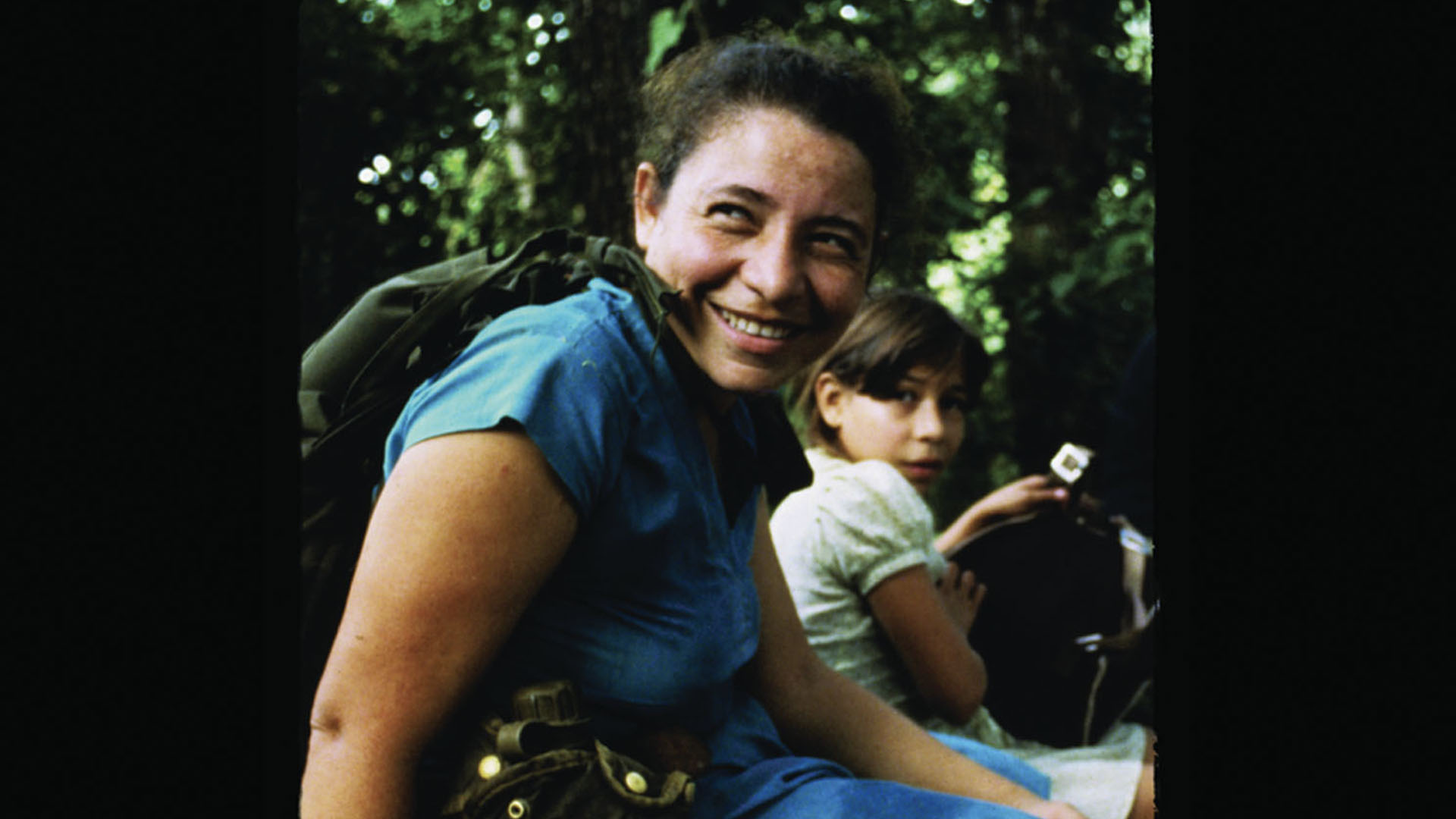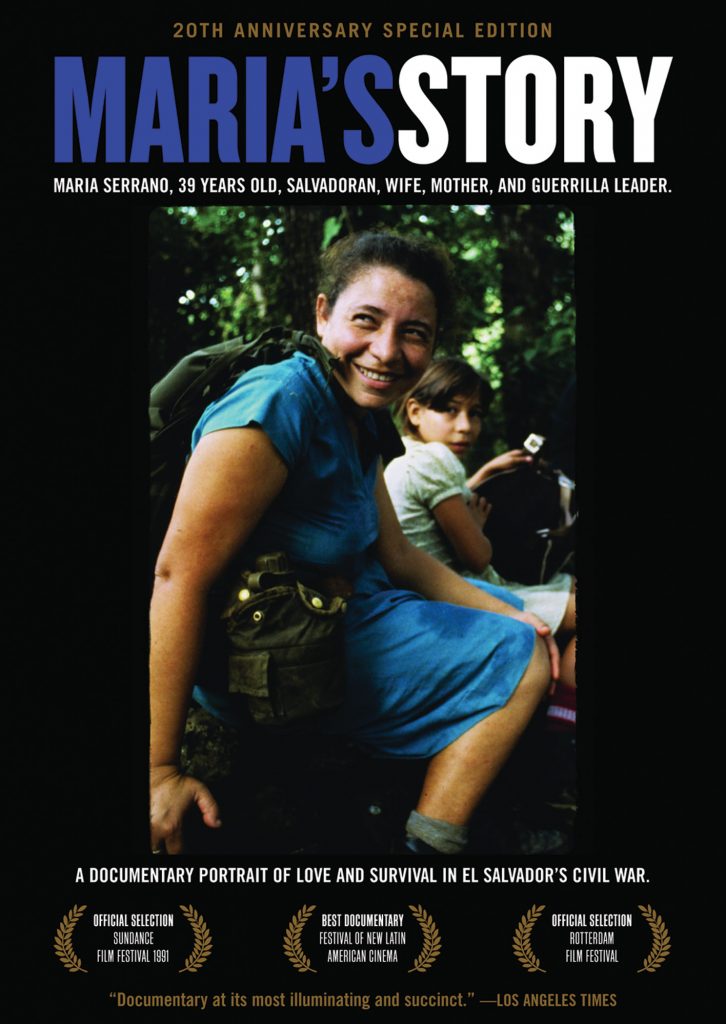By Kevin Thomas
L.A. Times
December 07, 1990
“Maria’s Story” (Monica 4-Plex), an example of the documentary at its most illuminating and succinct, introduces us to a remarkable and engaging woman, a dynamic 39-year-old Salvadoran peasant–a wife and mother of three who has become a charismatic guerrilla leader.
Short and stocky, possessed of an inner radiance, a ready wit, a healing touch, a strong intellect and matter-of-fact common sense, Maria Serrano is a kind of ultimate earth mother, a natural poet who can compare the flowering of revolution with giving birth.
Once we’ve made her acquaintance, felt her impact and been given a sense of her constantly roving–and highly dangerous–daily life, filmmakers Monona Wall and Pamela Cohen follow her on a visit to her hometown, Arcatao, which becomes a journey into the past that allows us to see how a farmer’s wife was transformed into an implacable rebel. As we approach the ruins of what was once an attractive mountain community of 10,000, now reduced to a 1,000, black-and-white flash cuts of archival footage reveal its systematic destruction by the military.
It was here that as a child Maria, in her hunger for education that her family could not afford, agreed to sit on the floor of the local school so that she might learn. It was here that she met and married her husband Jose, to whom she remains passionately devoted, and later was forced to hear the shrieks of the tortured from the nearby headquarters of the security forces.
Although on the move since the destruction of Arcatao in early 1979, Maria did not formally join the Farabundo Marti National Liberation Front (FMLN) until 1987, the same year that her eldest daughter was killed in an ambush. “If you adopt the armed struggle it’s because you have no other choice,” she says, “when you see the possibility of saving your life you save it, and if that means picking up a gun, you pick it up.”
Maria herself observes that her story is the story of the Salvadoran guerrilla movement, and in giving it shape and meaning, the filmmakers, which include the graceful cinematographer John Knoop, confront us with our country’s responsibility in the ongoing ordeal of Maria and her people while taking us way beyond political rhetoric. Maria insists that the Salvadoran civil war is not a struggle between the East and West–i.e., communism vs. capitalism. Rather, it’s about “not having enough to eat, not having a roof over your head and not having justice.” The sobering end crawl of “Maria’s Story” (Times-rated Mature) states that the United States has given the Salvadoran government $4.5 billion to try to crush the FMLN.







